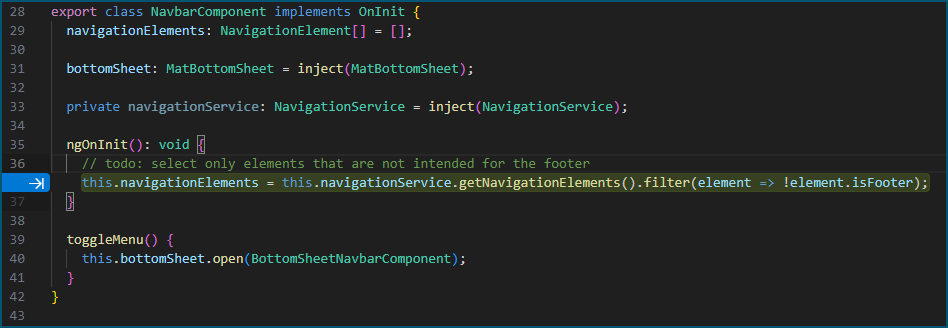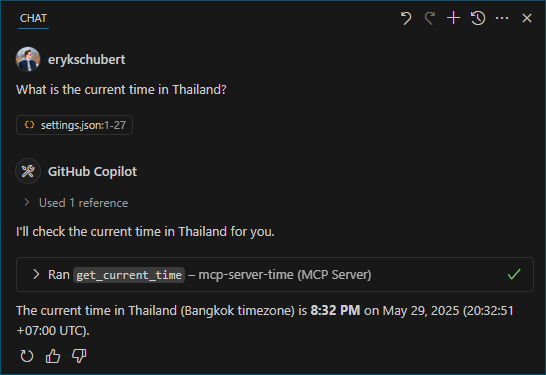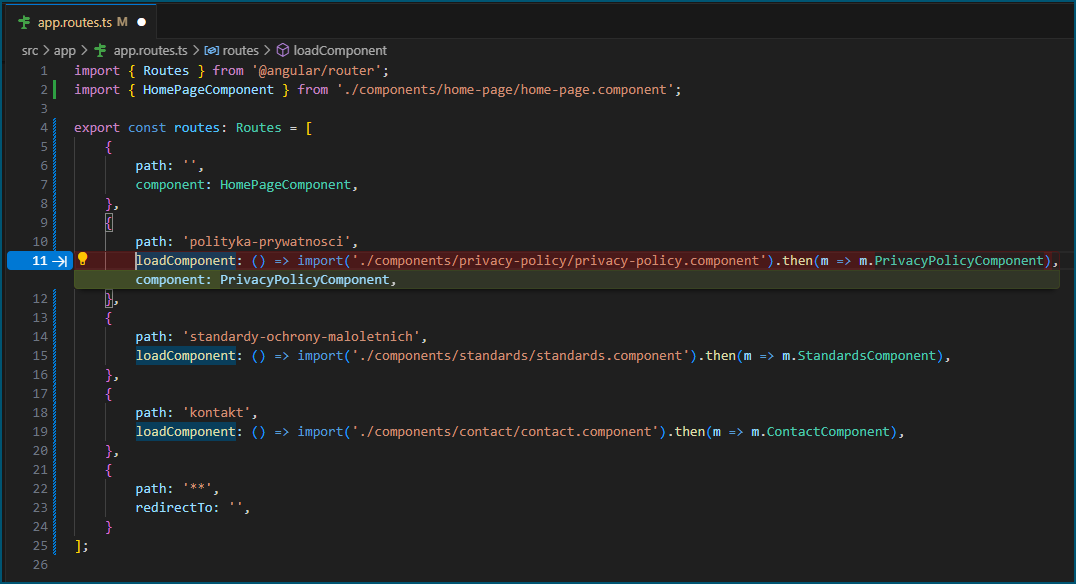Software engineering hasn’t seen a shake-up this dramatic since open source took off. Enter the AI coding agent – a self-directed teammate that drafts, debugs and reshapes code so you can stay focused on architecture and product goals. When you combine one of these agents with Visual Studio Code’s new agent mode and the open-standard Model Context Protocol (MCP), quick autocomplete hacks evolve into an end-to-end, full-stack workflow that’s revolutionizing coding practices.
Go to
What is an AI coding agent, and how does It work?
An AI agent represents a paradigm shift in software development, moving beyond traditional coding assistance to autonomous programming capabilities. It’s an autonomous agent that understands the broader project context, plans multi-step tasks, and executes them independently. Unlike simple tools that operate on a single file, an agent with code access has insight into the entire codebase, allowing it to perform complex refactoring and implement new features in a way that’s consistent with the existing architecture.
Its operation relies on advanced language models (LLMs) and a special agent framework, which allows it to interact with the development environment.
AI coding agent ≠ chatty AI assistant
Classical digital assistants are brilliant at sorting emails or juggling meetings. A coding agent, however, is built for serious engineering:
- Whole-repo vision – not just the file you’re staring at.
- Multi-step planning – think “replace our auth pipeline” rather than single-line completions.
- Hands-on execution – it can run shell commands, execute tests and land patches – no human copy-paste required.
GitHub’s Copilot Agent, for example, can launch a VM, clone your repo, add a feature, and open a pull request – all without leaving your IDE.
How does agent mode in VS Code improve workflow?
Since April 2025 every VS Code install ships with an Agent panel snug beside the editor. The agent monitors compiler output, terminal logs and file saves, so its advice is always in tune with what you’re doing.
Why devs love it:
- Inline roadmaps – before touching a line, the agent tells you the steps it plans to follow.
- Self-healing loops – if a test bombs, it iterates until green.
- Effortless tool-chaining – thanks to MCP, the agent can ping databases, cloud APIs or vector stores without you wiring things up manually.

Why the Model Context Protocol (MCP) matters?
LLM’s perform best with deep context. The Model Context Protocol is a vendor-neutral conduit that streams project graphs, tool specs and dynamic data into any AI agent. Anthropic’s open-source MCP servers expose file systems, cloud APIs or local Postgres databases without writing extra code.
What MCP adds
| Advantage | Impact |
| Deep context | Entire project graphs beat isolated snippets. |
| Real-time collaboration | One agent session adapts as multiple people edit. |
| Plug-in architecture | Drop-in MCP servers expose GitHub, AWS, or a local Postgres DB without writing glue code. |
Popular MCP servers
The open-source community maintains a growing list of servers that expose everything from file systems to cloud APIs. I encourage you to check the list of available MCP servers: modelcontextprotocol/servers: Model Context Protocol Servers

What are the advantages of using MCP for code generation?
MCP transforms code generation from isolated snippets to context-aware, full-stack solutions. Instead of generating isolated fragments, the agent gains the ability to create coherent, contextual code. MCP allows agents that use it to create high-quality code that is consistent with the rest of the project.
The main benefits include:
- Understand Complex Code Relationships: By accessing entire codebases through MCP, agents generate high-quality code that respects existing patterns, dependencies, and architectural decisions. The result is more efficient code.
- Complex code generation: With access to tools (tool calling) and external APIs, the agent can generate code that integrates with other systems and works with actual data.
- Improved code quality: The agent can use static analysis tools or run tests, ensuring that the code generated is not only functional but also adheres to best practices.
Tackling coding challenges with AI agents
Coding challenges can often be daunting, especially for beginners or when tackling unfamiliar problems. AI coding agents can provide step-by-step guidance, breaking down complex problems into manageable parts. AI coding agents can assist in several ways:
- Generate solutions for complex coding tasks
- Instant feedback & debugging
- Adaptive learning
- Repetitive tasks automation
Using AI to generate solutions for complex coding tasks
When faced with a complex problem, developers can describe it to the AI agent. The agent won’t just suggest a different code snippet; it can build code as a complete solution, which the developer can then iteratively refine. Using the code interpreter tool, a developer can analyse step-by-step how the agent arrived at the final solution.

Debugging with code review agents: a new approach
Debugging is traditionally a 20% diagnosis, 80% boredom. It can be one of the most frustrating and time-consuming aspects of coding. AI coding agents offer a fresh approach to this challenge.
- Developers can receive immediate feedback on their code, helping them identify errors or inefficiencies quickly.
- By understanding the context of the code, the AI agent can provide more relevant debugging suggestions, making it easier to resolve issues.
- As developers interact with the AI, it can learn from their debugging patterns, improving its suggestions over time.
AI agents can automatically pinpoint the root cause of compilation errors, suggest precise fixes and even generate unit tests to prevent regressions.
Adaptive learning and skill building
For developers looking to improve their skills, AI coding agents act as intelligent tutors. They provide detailed explanations for their suggestions, helping users understand best practices while building coding experience through hands-on practice with real-world scenarios.
How AI can automate repetitive coding tasks
Repetitive tasks can drain a developer’s productivity; boilerplate is the kryptonite of creativity. AI coding agents can relieve the pain in several ways.
- Project scaffolding: Single-prompt generation of project structures, build scripts, and configuration files
- Context-aware completions: Intelligent suggestions that understand your codebase and use code patterns consistently
- Automated documentation: Generated inline comments, API summaries, and README files that keep projects well-documented
- Integration assistance: Streamlined API and library integration with automatic configuration and error handling

What is the Future of Software Development with AI Agents?
The future of software development is likely to be heavily influenced by AI coding agents. It isn’t just about coding support from assistants like github copilot, but about fully autonomous agents. As these tools become more sophisticated, expect:
- tighter IDE integration, richer MCP toolchains and cross-agent collaboration – e.g., a design agent handing Figma specs to a coding agent that ships production React components overnight.
- agents to mediate merge conflicts, enforce security policies, and hand off tasks between design, data and DevOps agents. Newcomers will onboard in hours, not weeks, because every repo ships with an embedded tutor.
- and so on…
Agentic AI will manage the entire application lifecycle – from planning, through coding, testing, and deployment, to monitoring.
Conclusion
Pairing an AI coding agent with VS Code’s Agent Mode and the Model Context Protocol turns development from a tooling grind into true collaboration. With boilerplate outsourced, debugging streamlined and project context unified, you’re free to focus on solving real problems. Fire up your editor, toggle Agent Mode, plug in an MCP server – and see what happens when AI shoulders the grunt work so you don’t have to.
Frequently Asked Questions About AI Coding Agents
What’s the difference Between an AI Coding Agent and Traditional Coding Tools?
Traditional tools do static syntax help; agents provide live, context-aware actions and learn from your patterns.
How Secure is Code Generated by AI Agents?
AI-generated code undergoes the same security scrutiny as human-written code. Modern agents incorporate security best practices and can even perform automated security audits. However, developers should always review generated code and apply appropriate testing before deployment.
Can AI Agents Replace Human Developers?
AI agents augment rather than replace human developers. They excel at routine tasks, code generation, and debugging assistance, but human creativity, strategic thinking, and domain expertise remain essential for successful software engineering projects.
Can AI agents handle complex code execution?
Yes. With MCP and code interpreter tools, agents can run Python code, execute terminal commands and integrate third-party APIs to perform actions end to end.
Can an AI agent work with my existing code and repository?
Yes. This is one of its key strengths. A modern AI coding agent is designed to work with existing code. Thanks to protocols like MCP, the agent can securely access an entire repository, analyse the codebase, and introduce code changes in a way that is consistent with the project.
How does an AI coding agent differ from LLMs like those from OpenAI?
An LLM (e.g., GPT-4) is a language engine – it can generate text and code based on input. An AI coding agent is a complete system that uses an LLM as its “brain” but adds an execution layer (an agent framework) that allows it to plan autonomously, interact with tools (MCP tools, APIs), and perform actions in a development environment. An agent is much more than just the AI model.
Can I use AI models to build code in Visual Studio Code?
Yes, you can use advanced AI models within Visual Studio Code. They provide seamless integration, allowing you to write code and resolve any issues directly in the VS Code environment.
What is agent mode and how does it change the development tools landscape?
Agent mode is a feature available in specific AI models that allows them to operate autonomously, executing tasks without constant human input, which significantly enhances productivity and streamlines the coding process.
What common development tasks can AI agents assist with?
AI agents can assist with a variety of common development tasks, including writing code, debugging, testing, and optimizing code quality, making the coding process more efficient and effective.
